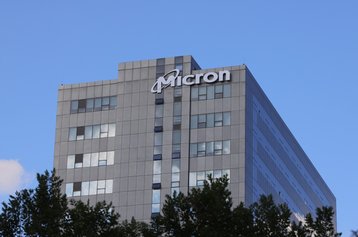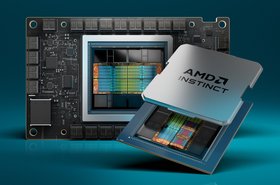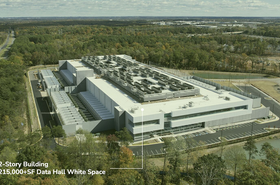Chipmaker Micron will receive up to $6.14 billion in direct funding under the CHIPS and Science Act.
The funding from the US government will support the construction of three new memory chip fabs: Two in Clay, New York, and one in Boise, Idaho, which the company started construction on in 2023.
In a statement, Micron said it will invest an initial $50bn in the projects, adding there was potential for the investment to reach $125bn over the next 20 years.
Separately, the White House noted that Micron’s total investment represents the “largest private investment in New York and Idaho’s history,” adding that the three fabs will create over 70,000 jobs, including 20,000 direct construction and manufacturing jobs and tens of thousands of indirect jobs.
The two fabs in Clay are the first of a planned four-fab “megafab” focused on DRAM (dynamic random-access memory) chip production. Construction of the first fab is due to begin in 2025, with production expected to start in 2028.
Meanwhile, the Boise facility will be a high-volume manufacturing (HVM) fab, also focused on the production of DRAM chips. Due to be operational in 2025, DRAM output is expected from 2026.
Micron said that, once operational, all three sites will ramp up production in line with market demand over the second half of the decade.
In a statement, the White House said Micron is “committed to delivering on its existing sustainability framework” for the new facilities, which includes plans to use 100 percent renewable electricity at all three sites and mitigate greenhouse gases, although no further information was provided on how that would be achieved.
Furthermore, under the terms of the agreement, Micron will invest at least $40 million from the CHIPS funding to support training and workforce schemes in the communities where the fabs are located to help local workers have access to jobs when the facilities are completed.
New childcare facilities for workers in both cities are also being built and Micron is partnering with local childcare providers to offer subsidized care to its workers. The company has additionally confirmed its workers will have the right to organize, share feedback, and collectively bargain.
“This is a historic moment for semiconductor manufacturing in the U.S.,” said Micron President and CEO, Sanjay Mehrotra. “Micron’s leading-edge memory is foundational to meeting the growing demands of artificial intelligence, and we are proud to be making significant memory manufacturing investments in the US, which will create many high-tech jobs.”
Flurry of CHIPS Act funding allocations showing no signs of slowing down
Speaking earlier this month, Commerce Secretary Gina Raimondo said she expected all the grant money under the CHIPS Act to be allocated by the end of this year.
"We're on a roll," she told reporters after it was announced Samsung would receive $6.4bn in direct funding under the Act. "We've done three of these [funding allocations] in the past month. We'll be doing more in the coming weeks.”
To date, the White House has allocated the following funding:
- In February 2024, GlobalFoundries was awarded $1.5 billion by the US government under the act to subsidize the company’s future semiconductor production capabilities and support expansion plans for its New York and Vermont sites.
- In March, it was announced that Intel would receive $8.5 billion in direct funding, $11bn in low-interest rate loans, and a 25 percent investment tax credit on up to $100 billion of Intel’s capital investments under the Act. It will be used to support the company’s investments in Arizona, New Mexico, Ohio, and Oregon where the company is expanding its chipmaking facilities.
- In early April, TSMC signed an agreement with the US government in April that would see the company receive $11.6bn under the CHIPS and Science Act to build a third fabrication plant in Phoenix, Arizona. This newly announced TSMC fab will produce 2nm or “more advanced process technologies depending on customer demand” and is expected to be in production by the end of the decade.
- Also in April, it was announced that Samsung Electronics would receive $6.4bn in direct funding to build a semiconductor cluster across a number of locations in Texas. This includes two semiconductor foundries producing 4nm and 2nm chips; an advanced packaging facility for high memory bandwidth; and a research and development facility in the city of Taylor, and the expansion of an existing Samsung site in Austin to support the production of fully depleted silicon-on-insulator (FD-SOI) process technologies.







